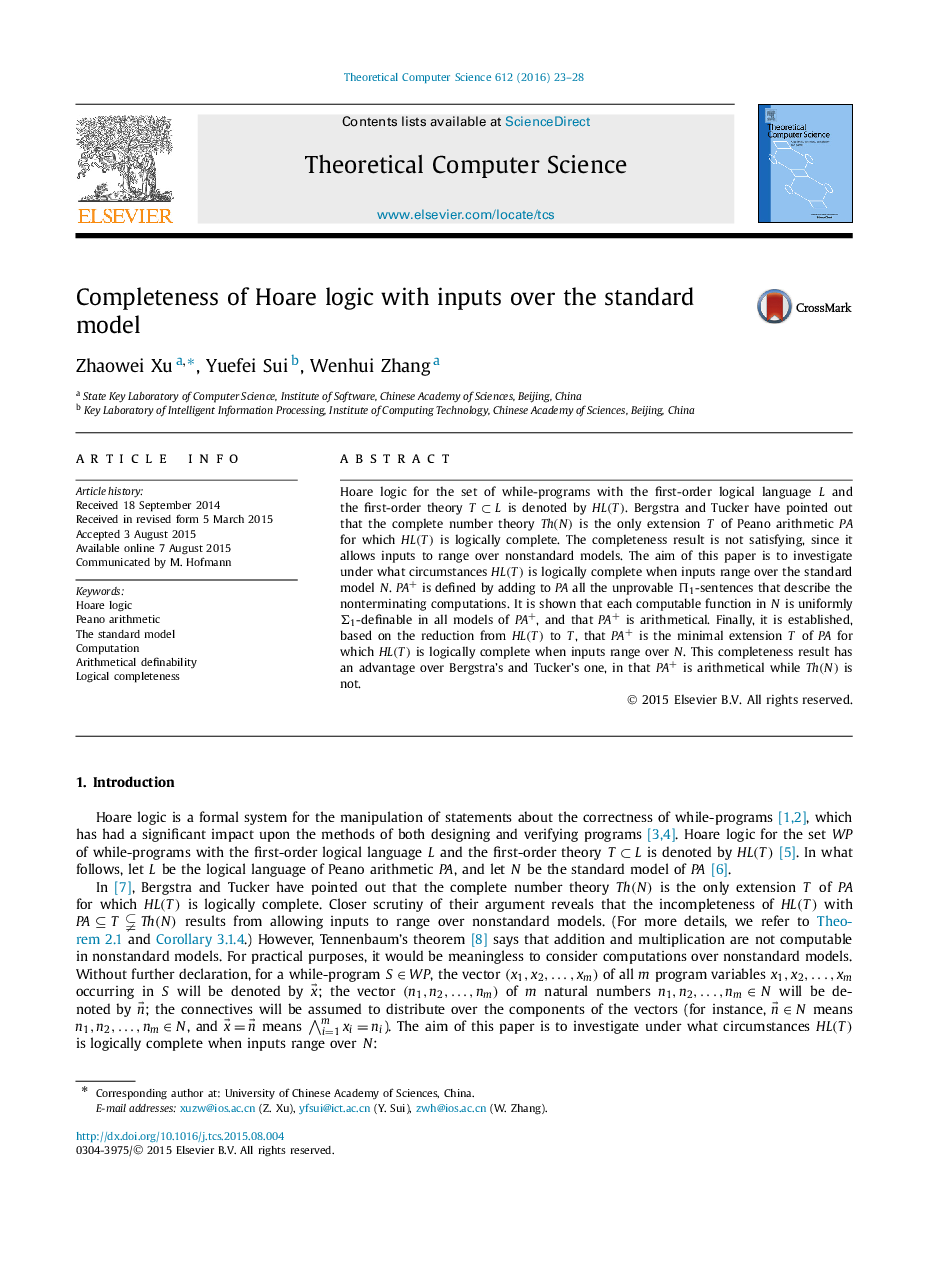| Article ID | Journal | Published Year | Pages | File Type |
|---|---|---|---|---|
| 435463 | Theoretical Computer Science | 2016 | 6 Pages |
Hoare logic for the set of while-programs with the first-order logical language L and the first-order theory T⊂LT⊂L is denoted by HL(T)HL(T). Bergstra and Tucker have pointed out that the complete number theory Th(N)Th(N) is the only extension T of Peano arithmetic PA for which HL(T)HL(T) is logically complete. The completeness result is not satisfying, since it allows inputs to range over nonstandard models. The aim of this paper is to investigate under what circumstances HL(T)HL(T) is logically complete when inputs range over the standard model N . PA+PA+ is defined by adding to PA all the unprovable Π1Π1-sentences that describe the nonterminating computations. It is shown that each computable function in N is uniformly Σ1Σ1-definable in all models of PA+PA+, and that PA+PA+ is arithmetical. Finally, it is established, based on the reduction from HL(T)HL(T) to T , that PA+PA+ is the minimal extension T of PA for which HL(T)HL(T) is logically complete when inputs range over N . This completeness result has an advantage over Bergstra's and Tucker's one, in that PA+PA+ is arithmetical while Th(N)Th(N) is not.
